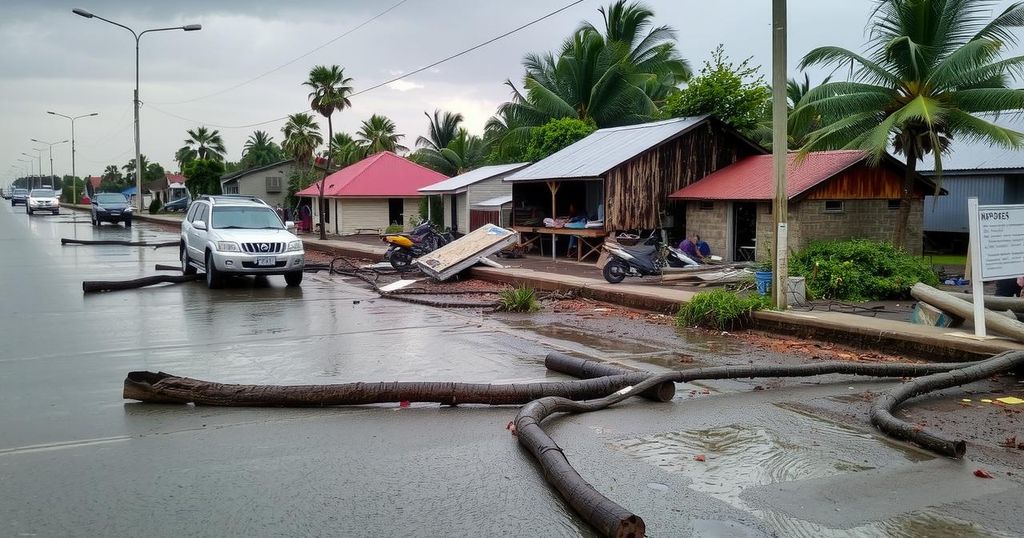Cyclone Chido in Mozambique: Rising Death Toll and Humanitarian Crisis
Cyclone Chido in Mozambique has led to a tragic death toll of 94, with Cabo Delgado being the worst affected region. The cyclone caused severe damage, impacting approximately 620,000 people. Amidst ongoing political strife in the country, the president has called for donations to assist cyclone victims.
The recent destruction wrought by Cyclone Chido in Mozambique has tragically resulted in a death toll of 94, as reported by the nation’s disaster management agency. Following its landfall approximately one week ago, the cyclone primarily impacted the Mayotte archipelago, with Mozambique suffering substantial disruptions as well. The northern region of Cabo Delgado was particularly affected, experiencing winds of up to 260 kilometers (160 miles) per hour and rainfall reaching approximately 250 millimeters (10 inches) in just one day, causing turmoil for nearly 620,000 individuals.
Among those affected, more than 500,000 reside in Cabo Delgado, which has been historically susceptible to tropical storms and also faces challenges stemming from a long-standing Islamist insurgency. The repercussions of Cyclone Chido are compounded by ongoing political unrest in Mozambique, wherein recent post-election violence has claimed at least 130 lives. President Daniel Chapo of the ruling Frelimo party visited the storm-impacted regions, calling for national solidarity by urging citizens to contribute food and clothing to the victims, stating, “Even if we are using them, our brothers need them.”
Cyclone Chido has emerged as a significant natural disaster for Mozambique, reflecting the increasing vulnerability of regions to extreme weather events attributed to climate change. The political background, marked by unrest following an election denounced as fraudulent, adds another layer of complexity to the humanitarian crisis. Cabo Delgado, already struggling with political and social instability, has witnessed repeated bouts of storm-related devastation, highlighting the urgent need for comprehensive disaster preparedness and response strategies.
In conclusion, Cyclone Chido has inflicted substantial human suffering and ecological damage in Mozambique, exacerbated by a combination of climate change and political instability. The rising death toll and severe impact on local communities underscore the need for immediate humanitarian aid and long-term measures to address both environmental and political challenges. The situation necessitates a concerted response from the national government and international community to support recovery and resilience efforts.
Original Source: www.dw.com




Post Comment